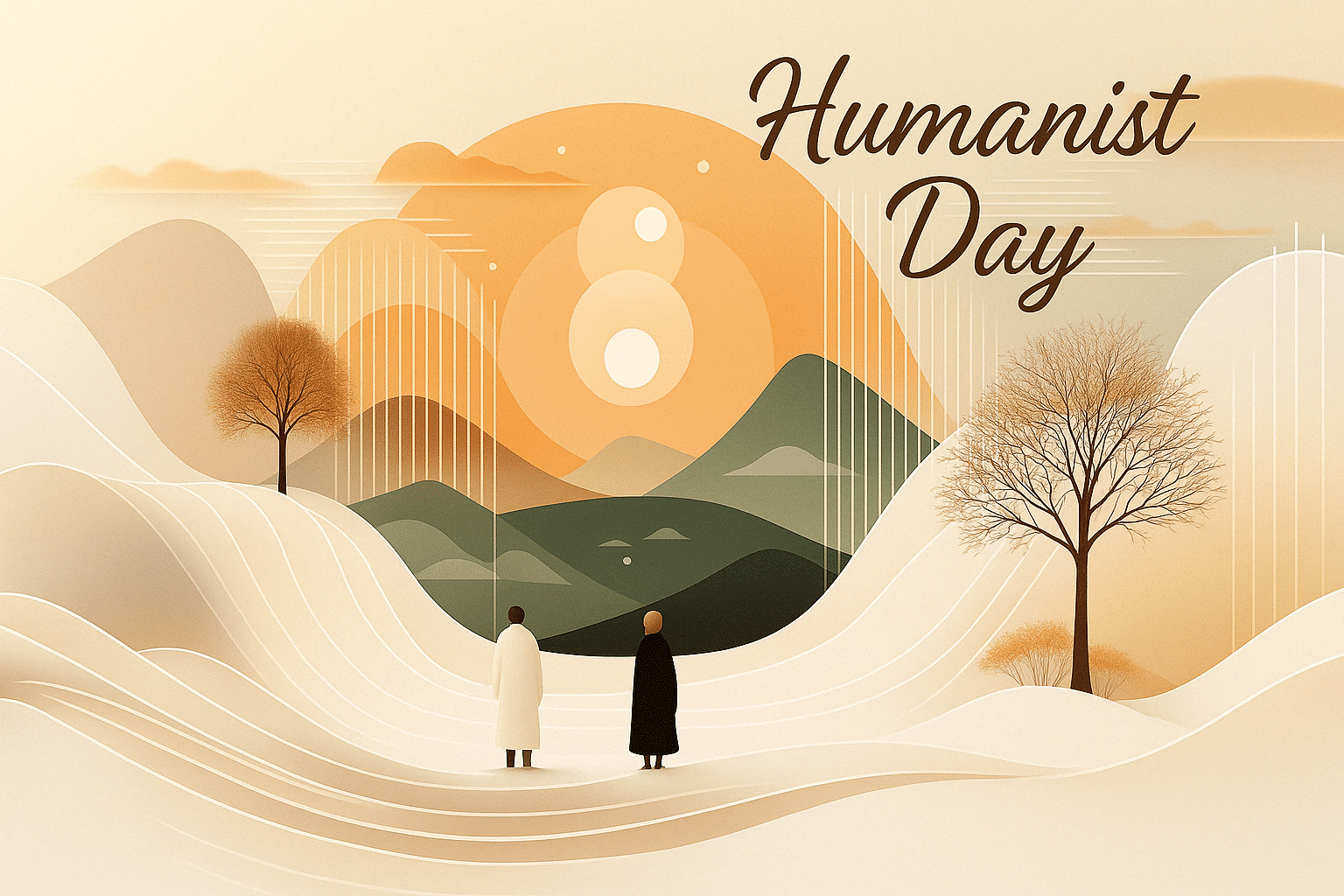What is World Humanist Day?
World Humanist Day is held every year on June 21 and is observed worldwide. The day celebrates humanism as a philosophy that focuses on reason, ethics and compassion. Humanists seek to live meaningful and responsible lives without depending on supernatural beliefs or religious systems. The timing of the day coincides with the summer solstice, a symbol of light, knowledge and renewal.
Humanism is not tied to any specific culture or religion. It is a global outlook rooted in scientific understanding, human rights and social justice.
History and Origin
World Humanist Day began in the 1980s when members of the American Humanist Association started celebrating humanism on the summer solstice. In the 1990s, both the American Humanist Association and Humanists International formally adopted June 21 as the official date. Since then, the day has grown in popularity among secular communities and thinkers around the globe.
The choice of the solstice was deliberate. It reflects the values of knowledge, growth and clarity. World Humanist Day is not just a celebration but also a moment to reflect on the progress of humanist ideas. Across the world, local groups host events ranging from philosophical debates to art performances, all focused on the human experience and shared responsibility.
Who participates in World Humanist Day?
- Humanist organisations: Organise lectures, festivals, and campaigns focused on ethics and critical thinking.
- Educational institutions: Include humanist values in discussions on philosophy, science and culture.
- Writers and thinkers: Publish essays, books or talks that explore humanism in today’s world.
- Volunteers and activists: Join or create projects that promote human welfare, justice and equal rights.
- General public: Attend events, share ideas or simply reflect on what humanism means in their lives.
Slogans and Themes
World Humanist Day highlights values like autonomy, dignity and knowledge. Common slogans include “Good without a god” and “Think for yourself, act for others.” The day encourages openness, questioning and a commitment to improving the human condition. Themes often focus on education, freedom of expression and cooperation beyond borders.
Colors, Symbols and Patterns
Colors
- Blue: Represents reason, peace and reflection.
- Gold: Symbol of enlightenment, progress and shared wisdom.
- Green: Stands for growth, renewal and connection to nature.
Symbols
- The Happy Human: A globally recognised symbol representing joy, freedom and human dignity.
- The sun: Reflects clarity, knowledge and the solstice.
- Books: Represent education, history and the value of inquiry.
Patterns
- Circular designs: Emphasise unity, inclusion and the global humanist network.
- Light rays: Refer to enlightenment and discovery.
- Interlinked hands: Represent solidarity, cooperation and shared human values.
Most used hashtags
- #WorldHumanistDay
- #CelebrateHumanism
- #HappyHuman
- #GoodWithoutAGod
- #ThinkActLive
How do you celebrate World Humanist Day?
- Join a discussion: Attend a lecture or debate about ethics, science or secular values.
- Share your views: Post a reflection, quote or thought about humanism on social media.
- Read and learn: Explore books or essays by humanist thinkers and philosophers.
- Support a cause: Volunteer for a humanist or social justice organisation.
- Host a gathering: Invite others to talk about values, progress and what it means to live responsibly.
Why is World Humanist Day important?
World Humanist Day is important because it promotes a worldview based on reason, empathy and shared humanity. It gives visibility to people who think critically and choose to live ethically without religion. In a world where polarisation and misinformation are growing, humanism offers a voice of balance and clarity. The day encourages honest dialogue and the value of science, culture and mutual respect.
It also provides space for reflection. Humanism is not fixed but evolves with society. On World Humanist Day, people can consider what it means to act with integrity and take responsibility for their impact on others. It’s a day to celebrate achievements, acknowledge challenges, and commit to building a better, more just and rational future. Whether through small actions or public events, the goal remains the same: to place the human being at the centre of concern and care.
Features
June 21: Humanist Day
Why do you keep falling for the same type?
Read the article Lovemaps: the hidden blueprint of our love.
Did you not find what you were looking for? Let me help you find more.

